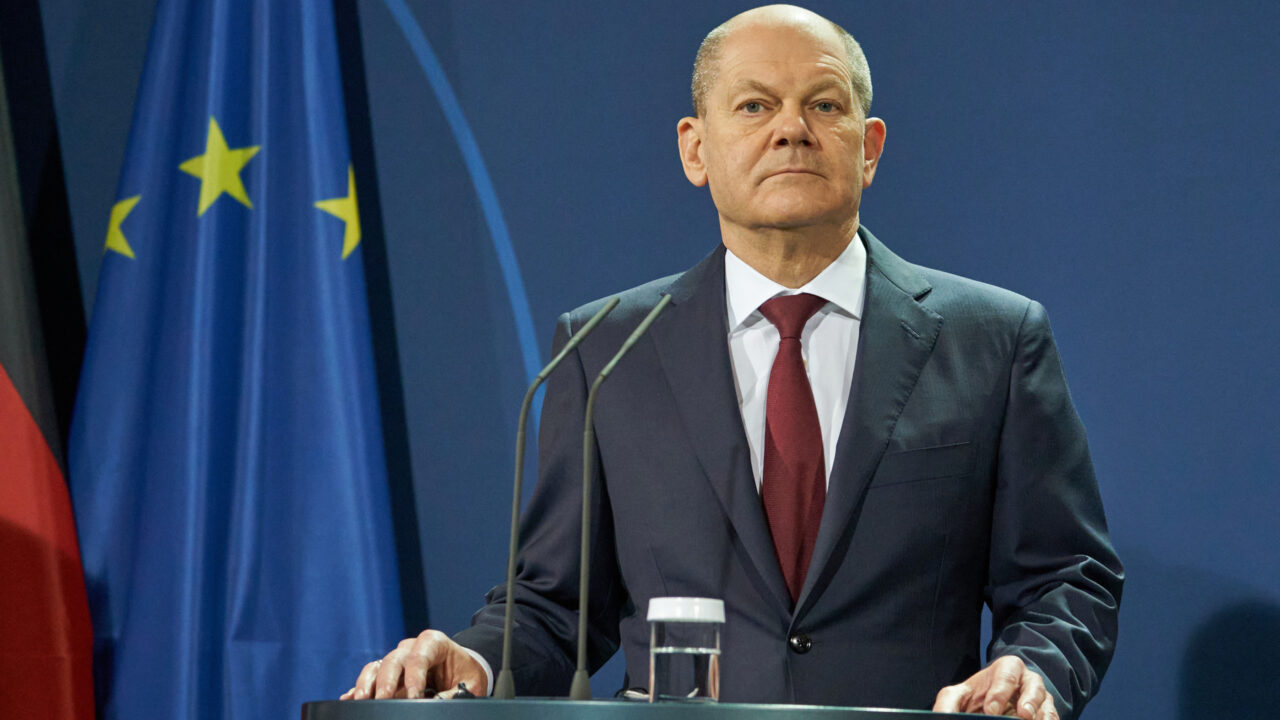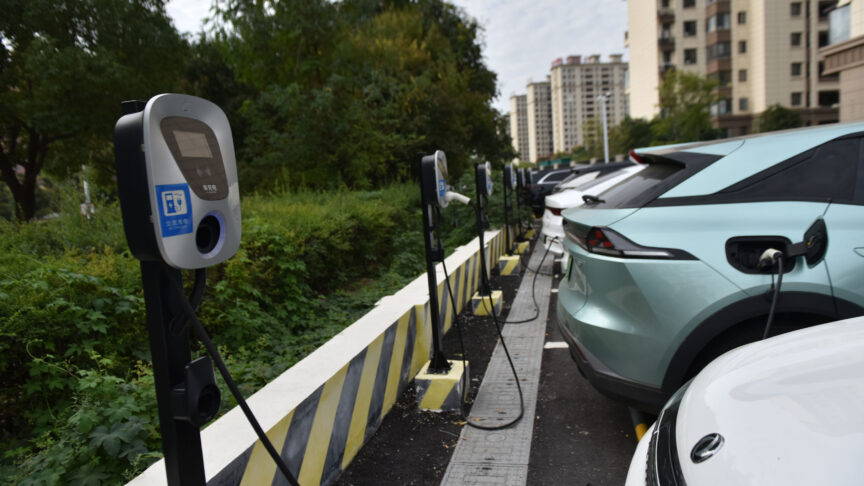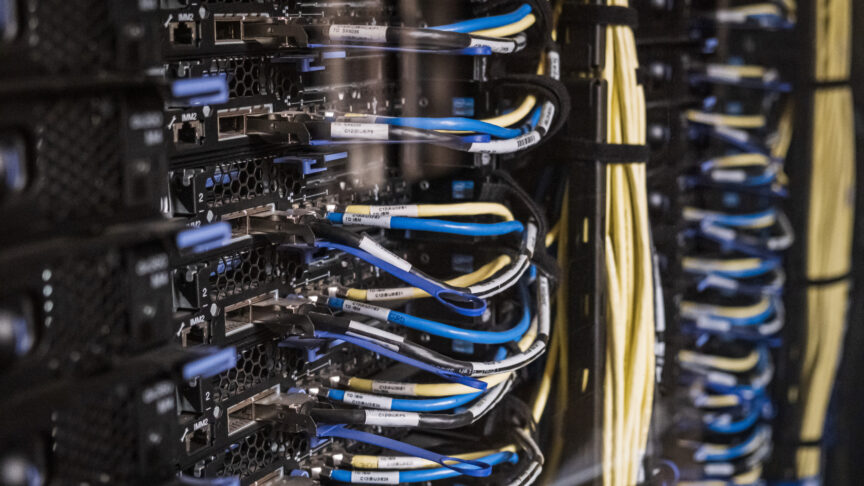The birth of a geopolitical Germany
The only way for Germany to escape its historical inhibitions and be true to its post-war development is to change
German Chancellor Olaf Scholz, in an emergency speech to the Bundestag on 27 February, launched a revolution in how Germany views the world and its role in it. The day before, Berlin had agreed to unprecedented G7 sanctions on the Russian central bank and the exclusion of many other Russian banks from the SWIFT financial messaging system.
For an Exportweltmeister whose success depends on an open and free global economy, these were shocking moves. Now aware that countries such as Russia use their economics as geopolitical weapons, Germany has no choice but to respond in kind. Moreover, these economic measures are so harsh that they could easily trigger Russian reprisals that will hit European economies hardest – something that many would not have suspected just days after the Russian invasion.
But Scholz did not just stop there. He also declared that Germany would supply lethal weapons to Ukraine. He talked about how Germany would need to launch a review of its energy policy to reduce its dependence on Russian gas. And he announced an investment of €100bn in concrete capabilities for the German military, to enshrine defence spending in the German constitution, and to spend more than 2 per cent of Germany’s GDP on defence in the next few years. All these policies break with Germany’s historical reflexes but, taken together, they amount to nothing less than a revolution.
Many outside Germany – and in the foreign policy community in Berlin – will view this as a long-overdue adjustment of German foreign policy. In recent weeks, they have often portrayed Berlin as the weakest link in the Western alliance. Germany has been widely perceived as a free-rider that hides behind its history to promote its economic interests – and, as a consequence, fails to do its part to preserve European security.
In fact, these perceptions were often unfair. Berlin’s actions – from its insistence on attempting dialogue with Russia and its refusal to supply Ukraine with weapons to its meticulous preparation for tough sanctions – had many causes. But, having spoken to many of the key decision-makers over the last few weeks and months, we do not think that the main motivations were selfishness, mercantilism, or a desire for an anti-Western Sonderweg (special path). Germany’s queasiness about geopolitics comes from the fact that the country has no history of using power politics in a progressive way. Resisting the idea of selling weapons to a country in a war zone and keeping open the possibility of détente are instincts that are informed by bitter experience. The German political class remains committed to the pursuit of peace, the maintenance of norms and rules, and the need for diplomacy. The problem was that – faced with an opponent like Russian President Vladimir Putin – many German policies seemed to be undermining those very ideals. In that sense, Scholz’s moves should not be read as an abandonment of Germany’s historical reflexes but rather an attempt to implement them in a different world – or, to use his resonant phrase, a Zeitenwende.
Putin’s aggressive effort to refashion the European security order and apparent willingness to weaponise energy make it essential to deter him and to diversify Germany’s energy mix
The combination of Putin, former US president Donald Trump, and Chinese President Xi Jinping has created a world that made it impossible for Germany to maintain its traditional stance. Putin’s aggressive effort to refashion the European security order and apparent willingness to weaponise energy make it essential to deter him and to diversify Germany’s energy mix (in a way that was not even necessary during the height of the cold war). Meanwhile, Trump’s verbal attacks on NATO and willingness to take action against Europeans make it impossible to outsource geopolitics to the White House. It is the fact that cooperation with the Biden administration is so close and effective that makes Germans realise how difficult their position would be had something like the invasion of Ukraine happened under Trump – and how difficult it might become from 2025 onwards.
German foreign policy experts increasingly called on Berlin to wake up to the new geopolitical reality following Russia’s annexation of Crimea in 2014, the election of Trump and his economic threats against Germany, and French President Emmanuel Macron’s call for a relaunch of the European Union. None of these events was cataclysmic enough to convince the German public to take the risks involved in a forceful approach to geopolitics. But, this weekend, one hundred thousand Germans took to the streets of Berlin not just to demonstrate for peace but also to call on their government to take tough action against Putin. Some of the signs they held up read: “I’m ready to freeze for peace.”
And, until the public shifted its views, no government felt it had the moral authority to make the change in policy. Under then-chancellor Angela Merkel, conservatives underscored the importance of NATO burden-sharing and the 2 per cent goal (even in coalition with liberals in the Free Democratic Party). Yet German defence spending stagnated and, at times, even decreased in absolute terms. The Green Party had tried to push for a more assertive stance on human rights vis-à-vis Moscow and Beijing, and had opposed Nord Stream 2 from the start – but these positions often created tension within the ruling coalition.
Last week, Scholz found himself under enormous pressure from European countries and the United States to change his stance on Nord Stream 2, SWIFT, and the sale of lethal weapons to Ukraine. Rather than making gradual concessions as Merkel did during the euro crisis, he used the external and internal pressure to bring about a root-and-branch change in his country’s foreign policy. And, in his speech announcing this shift, he also laid out an overarching strategic framework that explained it to the German public. This was similar to the way that, as finance minister at the beginning of the covid-19 crisis, he slaughtered Germany’s sacred cows on European debt policy.
Just as it took a conservative president to revolutionise US policy on communist China in 1972, so will it take a Social Democrat chancellor – supported by a Green foreign minister – to modernise Germany’s military. Conservative chancellor Helmut Kohl chose not to revise German dogma on the use of force to stop the genocide in Yugoslavia. And it was centre-left German politicians who took the important step to reverse this policy during the Kosovo crisis and after 9/11.
The only way for Germany to escape its historical inhibitions and be true to its post-war development is to change. Joschka Fischer and Gerhard Schröder recognised that the best way to achieve peace and prevent genocide was to intervene militarily against the destructive policies of Serbian leader Slobodan Milosevic. A similar realisation has now led to the emergence of a geopolitical Germany.
The European Council on Foreign Relations does not take collective positions. ECFR publications only represent the views of their individual authors.



